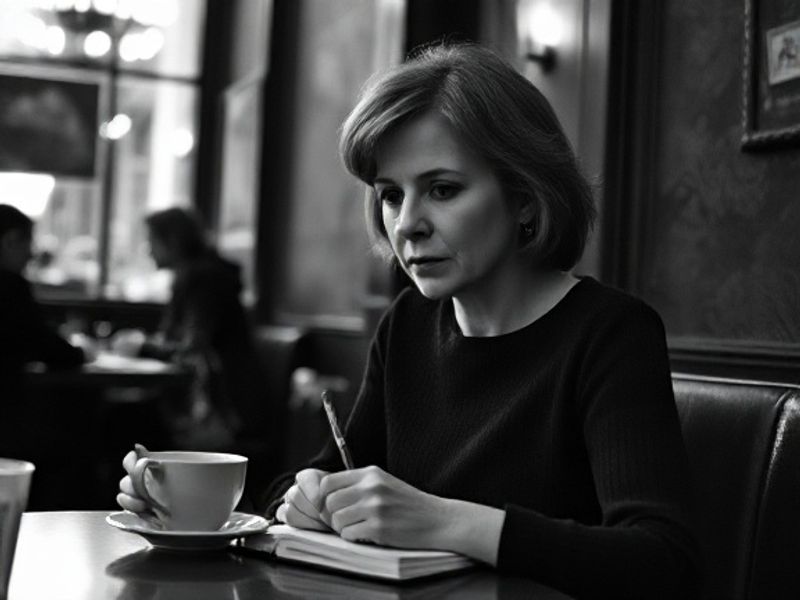Global Inkblot: How J.K. Rowling Became the World’s Most Expensive Controversy
The Wand That Backfired: How J.K. Rowling Became a Global Rorschach Test
There was a time, children of the dial-up age may recall, when the only controversy surrounding Joanne Kathleen Rowling was whether her publishers could squeeze the entire name “Philosopher’s” onto an American book spine. That quaint, sepia-toned epoch feels as distant as the Hogwarts Express’s original steam timetable. Today, Rowling is less a beloved children’s author than an international inkblot: what you see says more about your coordinates on the planet—and in the culture wars—than it does about the woman herself.
Start with the United Kingdom, where the creator of the Boy Who Lived has transfigured into the Woman Who Won’t Stop Tweeting. British politicians who can’t agree on the correct pronunciation of “scone” somehow manage bipartisan pearl-clutching over her views on gender identity. Her once-pristine Q Score now hovers somewhere between a leaky nuclear barrel and that guy who invented unsolicited reply-all emails. Yet the UK still sells £1.6 billion worth of Harry Potter merchandise annually—proof that Brits will forgive anything if it keeps the tourist pounds rolling in like badly behaved stag parties.
Hop across the Channel and France greets the Rowling affair with a magnificently Gallic shrug. Having watched their own intellectuals duel to the death over Derrida and Foucault for decades, the French treat Twitter spats like light aperitifs: piquant, but hardly existential. Le Monde’s literary supplement ran a cartoon of Rowling casting “Expecto Genderum,” while the Sorbonne scheduled a colloquium titled “Hermione, Harpies, and Hegemony: Post-Structural Witchcraft.” Tickets sold out faster than you can say “cultural imperialism, but make it butterbeer.”
North America, of course, turned the Rowling debate into a premium streaming service. The United States monetized outrage so efficiently that by 2023 you could buy “Team TERF” and “Trans Witches Are Real Witches” scented candles on Etsy—both manufactured in the same Shenzhen facility and shipped via Amazon Prime. Canada, ever polite, tried to split the difference with a commemorative loonie featuring Harry on one side and Hedwig rebranded as a gender-neutral snowy companion. The coin was recalled after it refused to identify as legal tender.
Meanwhile, in the Global South, Rowling functions as a handy proxy for every conversation locals actually want to have about colonialism. Nigerian Twitter delighted in pointing out that Hogwarts never offered scholarships to Lagosian mages, while Brazilian columnists noted the conspicuous absence of Amazonian herbology in the curriculum. When Rowling herself weighed in—something about house-elves being “happy to serve”—the memes practically wrote themselves: “Dobby voted for Bolsonaro” trended for three days straight.
Asia offers perhaps the most delicious irony. China, where the books are beloved but references to “transformation” are quietly redacted by censors, simply banned Rowling from social media and continued raking in theme-park revenue. Japan turned the entire debate into a manga subplot in which a magical girl must choose between her wand and her pronouns; it outsold every other title in Shōnen Jump last year. South Korea gamified the controversy with a K-drama about a ghostwriter hired to apologize on behalf of a disgraced British novelist—ratings soared, especially among viewers who thought “cancel culture” was a new K-pop group.
Rowling herself has become a case study in the paradox of modern authorship: the more she insists on textual authority, the faster her readers conjure alternative canons. Fan fiction sites now host 200,000 stories that surgically remove her from her own universe—an act of literary liposuction more aggressive than any Brazilian butt lift. Universities from Cape Town to Copenhagen teach courses on “The Death of the Author, Live-Tweeted,” while venture capitalists salivate over NFT spells that let you own your own bespoke Patronus, free of any troublesome creator royalties.
And so the world spins on, propelled by ever-faster outrage cycles and ever-slower theme-park queues. Rowling, once the high priestess of childhood wonder, has accidentally produced her darkest magic yet: a global mirror that reflects every society’s ugliest anxieties back in real time. Whether you see a brave truth-teller or an unrepentant bigot, remember the first law of transfiguration—objects in the Mirror of Erised may be more problematic than they appear. Meanwhile, somewhere in Edinburgh, an extremely wealthy woman is probably muttering that she just wanted to sell some books. The spell, as they say, is cast.







